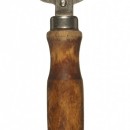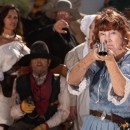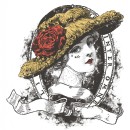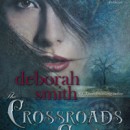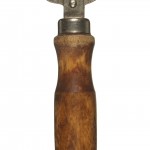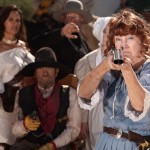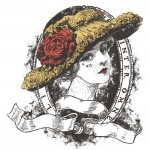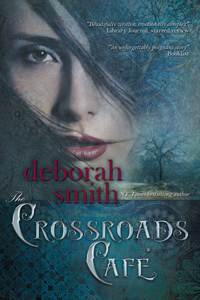 Why is there no Grandmother’s Day?
Why is there no Grandmother’s Day?
This is a trick question.
Every book I write, including The Crossroads Café, focuses not only on a core romance story but is also about family; mothers, fathers, daughters, sons, and grandparents. Sometimes the theme may be subtle, sometimes not. Family is the parallel core, regardless.
My mother made me what I am today.
All the good stuff and the bad. Some of it sad, but forgiveness was always a given between us.
She was simple, easy, heartbreaking, wonderful. Ma was normal, flawed, like me, but kinder than I am and more realistic. I miss her every moment of every day. She died in my home nine years ago next December, her bedroom filled with Christmas decorations, with me standing beside the rented hospital bed, yelling for help from the hospice nurse.
I am writing this in a sunroom that is now my office, just outside her bedroom. Fifteen feet from where she lay in that sad, rented bed with its undulating air-pump mattress to prevent bed sores, its pull-up rails to keep her from tumbling out, and the loud, gasp-and-release gush of the oxygen concentrator that fed life into her cigarette-ruined lungs.
A few of her clothes still hang in the room’s closet. I store my yarn in there, and so I often stroke her dresses while searching for a skein or hank. Her soft fleece jacket, her nightgowns. I talk to them. To her.
I want her forgiveness for something. It’s always there, the need to be forgiven by her.
Forgiveness was never an issue with my grandmother, however. Forgiveness was for weaklings. She wanted to mold me into a fire-breathing dragon, the spitting were-cat of Southern womanhood. Just like her.
As a result, I’m a product of a mixed marriage.
Submissive, chain-smoking, hard-drinking, tender-hearted Mama.
Dominant, teetotaler, hard-hearted Grandmother.
I have the fantasies of a Valkyrie mixed with the manners of a furious wildcat shellacked with the veneer of Melanie Wilkes.
Why, bless your heart. And to hell with you.
There she is. Grandma is peeking around the corner of my mind, whispering to me. Good angel or fallen angel? Both?
She defended me fiercely during my years as a whacky teenager, but would come into my tiny bedroom when I slept too late and throw a pan of sizzling, oven-broiled buttered toast on me.
On the eve of my wedding, she very dramatically (at 85 years old) staggered down her hallway and collapsed loudly against my bedroom door.
“Have your fun and spend your money the way you want to before you get married. After that, you’re stuck.”
No offense to my beloved Husband of lo’ these many years, but she had a point, at least in her experience. She’d given up her career at Western Union in the 1940’s, as a trainer of telegram operators, because my grandfather (who also worked for Western Union) said she must stay home and become a fulltime mother to my Dad.
Dad turned out to be an only child. Go figure.
She put aside her daily downtown Atlanta life, where she rubbed shoulders with Margaret Mitchell, shopped at Rich’s Department Store, and was among the first at Western Union to know that President Roosevelt had died at Warm Springs—top secret messages came through her office on their way to Washington, D.C.—to become a farm wife wearing aprons and canning vegetables.
The anger in her was immense. As a child I watched her gleefully wring chickens by the neck; she patrolled her property with a sawed-off shotgun and challenged neighbors to so much as set foot inside her territory. Before electric or even hand-cranked can openers, she jabbed the wicked blade of a hand-held can opener into quivering tin containers. She pumped the blade around their rims like an oysterman cracking a shell.
She could kill people with that can blade. I’m not sure she hadn’t stabbed a few. Some of her nefarious siblings (from a dirt-poor family of eleven kids) challenged her as long as she lived.
She adored her baby brothers—they could do no wrong, in her mind—the preacher, the polio survivor, the dead war hero, and the youngest brother who joined the navy not long after World War One and eventually settled in sunny California with a bawdy, lovable, California beach babe.
But her sisters? Whoa. It was whispered she’d hauled her indiscreet younger sisters to back-alley abortionists in their teens; she’d even incarcerated one sister in a Catholic “school” for girls. Grandmother didn’t care about religion, not seriously, so she had few prejudices in that regard. To her, Catholic nuns were admirably strict. She judged them on that merit, alone.
Grandmother didn’t take excuses for an answer. This was the girl who got on a train in 1911 and traveled to the far end of Georgia. She was seventeen years old and had never been outside her own home county before.
She worked her way through a teacher’s college amidst the hot cotton fields of South Georgia, waiting tables in the faculty dining room.
It was a co-ed school. The boys studied farming. Modern agriculture. Grandma became sweethearts with a football player. She posed for a picture on a tennis court, of all things, holding a racket and pretending she would ever willingly smack a ball for fun; besides, the college’s dress code was still rooted in the 1800’s. So there she stood, the farm girl corseted into a dark, full-length dress with puffed seeves. Her brown hair was done up in a high Gibson Girl ’do.
Her expression looked grim.
You’re going to aim a stupid little ball at me? You’ll wish you’d been skinned alive, instead.
She never doubted herself, never apologized, never backed down. At the end of her life, as she lay in a nursing home at ninety-two, with me holding her hand, I said, “I love you.” I had hardly ever said that to her before. She’d never said it to anyone, me included.
“I love you,” I said.
“I know,” she answered.
Couldn’t pry a return confession out of her. Not even with Death’s scepter as the can opener.
Remember your family with THE CROSSROADS CAFE – an April Monthly Deal for only $1.99!

